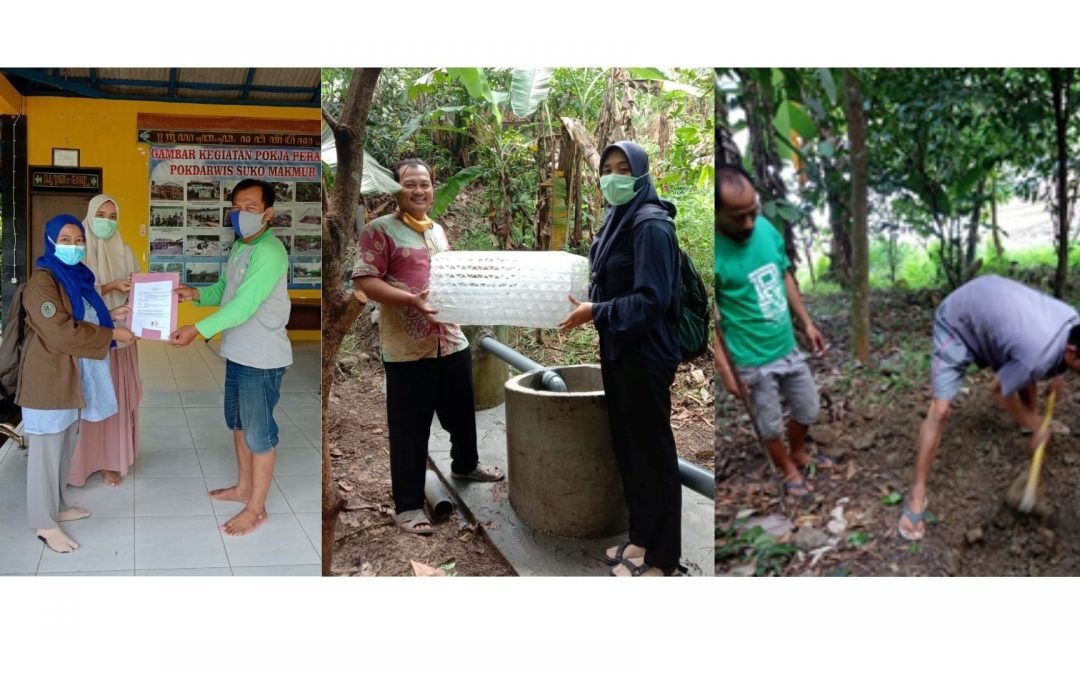AQUATIC, SEMARANG – The condition of the Covid-19 pandemic, which is still ongoing in 2021, has resulted in high levels of waste in the environment, one of which is liquid waste. The Health Protocol which requires that you always wash your hands before doing activities causes liquid waste to increase so that management needs to be carried out so that the environmental quality of the Jatibarang Reservoir is maintained. The liquid waste generated in the Jatibarang Reservoir environment comes from the activities of food stalls and street vendors. The management of liquid waste generated by these activities is still not optimal, so it is necessary to carry out further management with a Waste Water Management Installation (IPAL) system. Jatibarang Reservoir is a tourist destination in Semarang City for flood control and needs to be supported by a good and controlled sanitation system. Therefore, the community service team from the Department of Aquatic Resources, Faculty of Fisheries and Marine Sciences, Diponegoro University, chaired by Dr. Aninditia Sabdaningsih, S.Si., M.Si conducted a service entitled “Application of Appropriate Technology for Aerobic Anaerobic Biofilters for the Development of Simple WWTP in Jatibarang Reservoir”. The purpose of this service is to increase public awareness of the importance of managing liquid waste from the by-products of daily activities so that it is not directly discharged into the reservoir, as well as the use of appropriate technology to be applied in people’s lives in the Jatibarang Reservoir Area in the development of wastewater treatment by utilizing indigenous microbes. through the application of an anaerobic-aerobic biofilter.
This service research activity was carried out on October 22, 2021 at the Jatibarang Reservoir located in Kandri Village, Gunung Pati District; Kedung Pane Village and Jatibarang Village, Mijen District, Semarang City, Central Java Province. This activity began with socialization with Mr. Widodo as the representative of Pokdarwis Suko Makmur and the handover of appropriate technology was carried out. The process of making the honeycomb biofilter is placed in the third waste reservoir with the intention that all solid waste is accommodated in the first and second buis, so that only liquid remains in the third buis and facilitates the growth process of indigenous bacteria in decomposing organic matter. It is hoped that this activity will be able to increase the knowledge of the local community in processing waste so that the environmental quality of the reservoir is maintained, especially from the enrichment of water nutrients.


